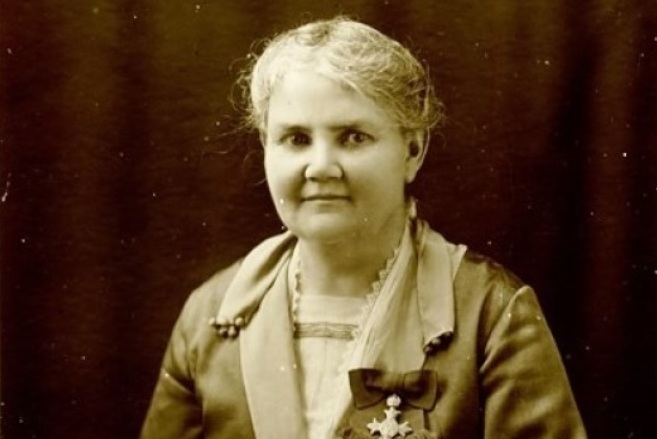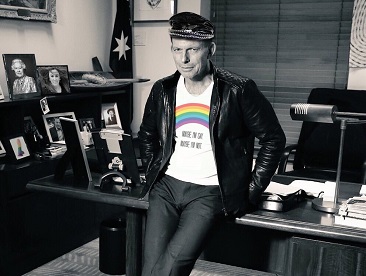As New Zealanders vote to keep the flag of the British Empire, Dr Benjamin Thomas Jones asks how this reflects on Australia's flag debate and future independence.
THE PRELIMINARY VOTES are in and New Zealanders have chosen to retain their current dominion-era flag.
Give that a minute to sink in. New Zealand is a modern, functionally independent, naturally breathtaking, and internationally popular nation.
This is a country that has produced world-class explorers, inventors, actors, and artists out of all proportion to its small population. The way Maori culture is cherished and preserved is exemplary to other former European colonies (not least Australia). And of course, the world-beating All Blacks are revered and feared in equal measures from Cape Town to London.
How is it possible then, that this progressive, multicultural, democratic nation decided the flag of the United Kingdom was a better symbol of modern New Zealand than the Silver Fern? It is a choice that seems to defy all logic. The two flags on offer were so similar. They both retained the blue background and red Southern Cross. The only difference was the Union Flag of the incumbent was replaced with a white Silver Fern with black in the top left corner.
It is easy to make an argument for change. The current New Zealand flag is representative of a dominion of the British Empire. Its purpose was not to stand out but to fit in with the dozens of flags that boasted the Union Flag in the upper hoist. What was a positive a century ago is now an obvious negative. New Zealand and Australia have embarrassingly similar flags as neither country has mustered the political will move on from the familiar symbols of empire. It is to both nations’ shame that these colonial relics are still used to represent vibrant multicultural success stories.
There is an incredible power in tradition and the status quo. Many people passionately want change while others oppose it with equal passion. The third factor is the large referendum-deciding group that simply do not care. Overwhelmingly, they will side with the incumbent.
Do New Zealanders identify as British? Do they think of themselves as the last outpost of a great British empire? Do they genuinely feel that British heritage should be publically celebrated and honoured more so than others? Of course not! The real explanation is that progressive people either voted 'No' or abstained from voting.
The preliminary results are eerily similar to Australia’s failed republic referendum of 1999. In that referendum 95.1 per cent of voters turned out and 45.13 per cent cast for a republic. In New Zealand, just 67.3 per cent of voters had their say with 43.2 per cent supporting the Silver Fern. The immediate takeaway is that clearly the British monarchy does not unify Australians and the current flag does not unify New Zealanders. In both referendums, misguided progressive people were spoilers.
The Australian story is well known. Phil Cleary, Ted Mack, and others who wanted a direct-election model rather than the parliamentary appointment model on offer in 1999 worked with monarchists to defeat the republic. They mistakenly thought the momentum was so great that there would soon be another vote with their preferred model (we’re still waiting!). Instead, they killed the issue and gave monarchists the greatest trump card of all; the false claim that people voted against the republic when obviously many republicans simply voted against this republic.
In New Zealand, many progressive voices declared openly they would vote No. A large proportion of these were devoted fans of the Red Peak design. Supporters of other flag designs have done a huge disservice to the nation. They thought they would get another vote if they just temporarily sided with the No camp.
What they have achieved is an embarrassing own goal. British race patriots and other fans of the current flag now have all the ammunition they need to kill the issue off for a century or more. All calls for a new flag will be met with a resounding counter “we already voted and a clear majority support the current flag”. Of course, this is not true and supporters of other flags voted No. It will not matter. It is propaganda gold.
When I conducted the Alternative Australian Flag Survey in January, I was shocked by the petty, tribal nature of flag advocates. Possessed with evangelical zeal, they are convinced only their specific design can ever prevail. It is funny yet heartbreaking to hear the ridiculously over the top language employed to denigrate rival designs. So few seem to have the maturity and respect for democracy needed to see a successful campaign. Even when the Silver Fern prevailed as the clear popular choice, fans of other flags insisted, “nope, democracy is wrong, people need to understand my preference alone is the right one”.
Australia and New Zealand dishonour their Indigenous peoples, their vibrant multiculturalism and their democratic nature by retaining their dominion flags. A clear message is sent to the world that these are not grown up nations and that British heritage and history is valued and respected above all others — even the first peoples of these ancient lands. But until progressive people who want a new and independent flag for Australia and New Zealand decide they love their country more than they love their personal flag preference, every referendum will fail and we will repent in leisure.
Dr Benjamin T. Jones is an adjunct fellow at the School of Humanities and Communication Arts at the University of Western Sydney. You can follow Dr Jones on Twitter @BenjaminTJones1 or on his blog, Thematic Musings.
Thousands back alternative Australian flag designs https://t.co/uKD9d3nISj pic.twitter.com/mdyArhFNhY
— SBS News (@SBSNews) January 26, 2016

This work is licensed under a Creative Commons Attribution-NonCommercial-NoDerivs 3.0 Australia License
Could we be tossing out the Union Jack for the Southern Horizon as our new Australian flag? https://t.co/EFfSyFulmq
— IndependentAustralia (@independentaus) January 27, 2016
Monthly Donation
Single Donation
Keep up. Subscribe to IA for just $5.









